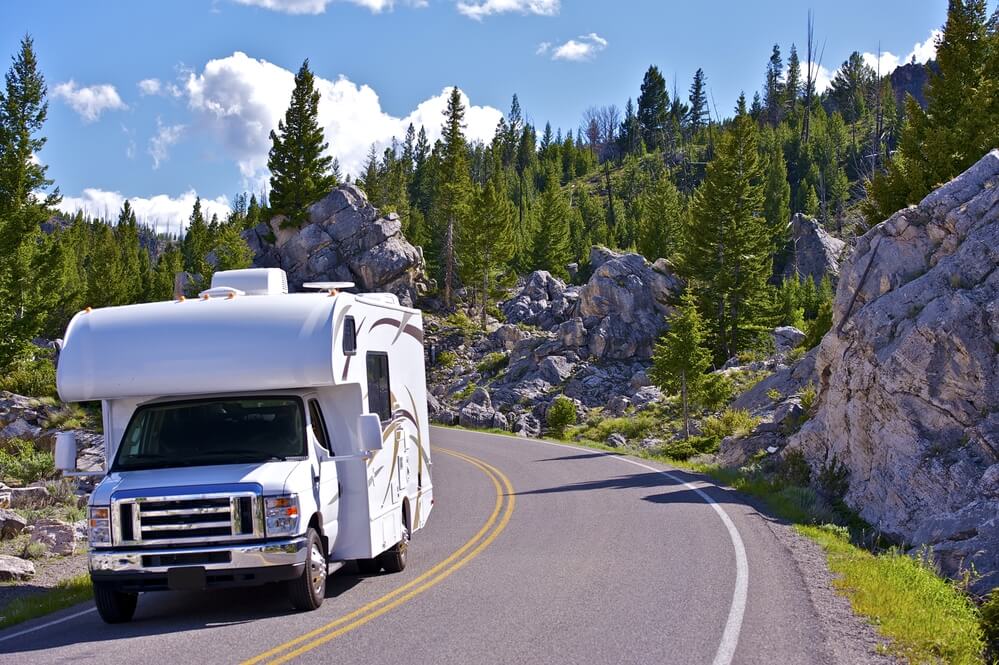RVs are awesome, aren’t they? They are essentially a house on wheels. You get to go on adventures, while still feeling at home. If you own one, it’s probably your pride and joy. You try to keep it in tip-top shape. But any seasoned RV owner knows that issues do pop-up.
RVs are big, heavy and use complex systems to run properly. So, problems will come up from time to time. But RVs have a rich history, which means that we know a lot about them. If you want to learn more about its history, this RVshare article is a great place to start.
All the information you could ever want is on the internet. There is an inordinate amount of resources available for you to access almost instantaneously. You can learn just about anything you would ever want to know there.
Maintenance information for RVs, specifically, come in all shapes and sizes. They can range from tips and tricks, RV-101 articles, instructional manuals, to full-length videos showing step-by-step repairs. The RVRepairClub site is a great place to start learning about DIY repairs that you can do on your RV. The videos are made by expert mechanics.
But you may run into a problem you can’t do yourself. Some people just aren’t confident in doing mechanical work. You will, then, have to go out and look for a mechanic.
According to Mobile RV Repair Tampa, RV repairs and maintenance can get expensive, and they would know as they perform services like mobile RV repair in Tampa. Finding a trustworthy mechanic is essential to keeping the bottom line as low as possible. According to RVShare, you should first ask locals, or look at online forums and reviews of mechanics. Then ask for a quote and compare it to the chart in this link. The link gives a great breakdown of what to expect from repairing common problems.
According to Driving Life and CrossRoads Trailers, the most common issues that you will encounter are:
Water Pump and Water-Liner Malfunctions
Broken water pumps or water-liners that have burst are one of the most common problems for first-timers. This is because it’s not something obvious. Though it can be easily avoided by knowing that it can be a problem. All you need to do is properly store your RV during the winter. If you do spring a leak, you can apply a sealant to it. It’s not a permeant solution and you may need to replace it. This guide will help if it ever happens. To prevent it from getting to that point, you should:
- Empty water tanks on a daily basis
- Be mindful of the weather
- Empty water tanks before storing your RV away for the winter.
Blown-Out Tires
An RV is a monster of a vehicle. They can weigh more than 5,000 pounds. There’s so much weight on those tires. Add that with driving over bumpy or poorly maintained roads for hundreds of miles can be dangerous. A blown-out tire is very dangerous. For your safety, you need to regularly check your tire pressure before heading out onto the open road. If it does happen, you should always keep a spare and replace the tire immediately, making sure to be safe on the roadside.
Toilet Malfunctions
No one wants to have to deal with a malfunctioning toilet. If water doesn’t stay in the toilet bowel or water keeps running, you may have a problem. It should be looked into as soon as possible. Thankfully, it is usually a quick fix. You may need to replace a valve seal and make sure all valves are completely closed. Valve seals aren’t too expensive so you will be on the road in no time.
Battery Failure
Battery failure can get annoying. If your lights don’t turn on or the motor doesn’t start. Check to see if you need battery fluid. Also, check to make sure that the battery isn’t dead. You can just plug it into an AC power outlet to charge it and you will be all set.
Window and Roof Leaks
RV’s may be like your second home. But it isn’t anywhere as structurally sound. Bad weather, sunlight, and low-hanging branches can damage your roof. You should get a roof cover and check every month to make sure there isn’t any damage. Window leaks can be resealed with sealant if needed.
Carbon Monoxide Poisoning
This isn’t as common of a problem, but it does happen. I want to cover all the bases and make sure you are safe. Like any car, RVs produce carbon monoxide. The only difference is that there are more ways for gas to seep into the cabin. There are many more cracks and openings. You should always have a carbon monoxide detector in the RV, making sure to check the batteries periodically.
User Error
Murphy’s Law, “anything that can go wrong, will go wrong.” Human error is something we all go through, but there are ways to lessen the chances of it. It, usually, happens when people aren’t paying attention to what they are doing. When you are getting ready to continue your journey and packing up the campsite, make sure that you:
- Take down awnings
- Disconnect any hoses
- Close any slide rooms
- Get a checklist and make sure all the tasks are checked off.
Driving an RV means freedom to go wherever you want. Reading this article will prepare you for the open road. Drive on and have fun!

